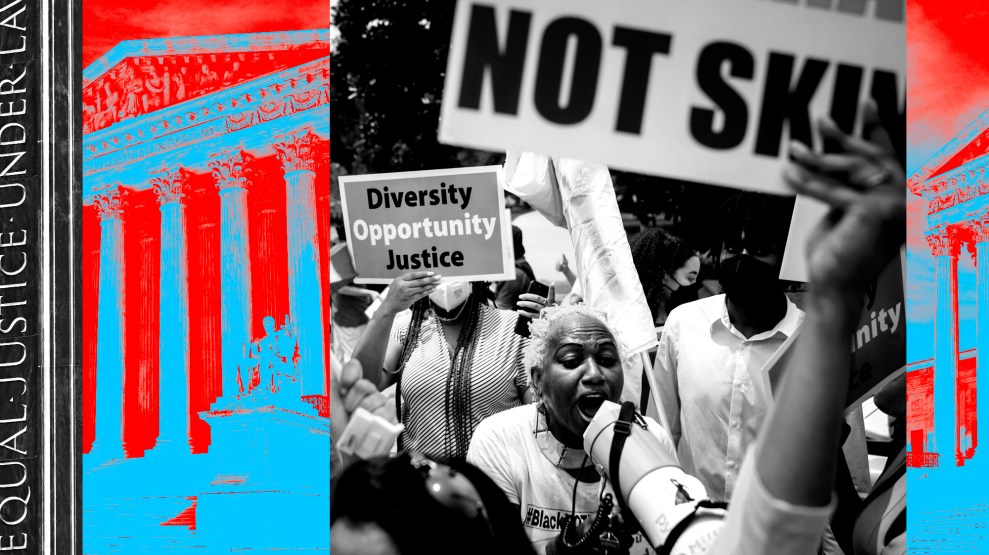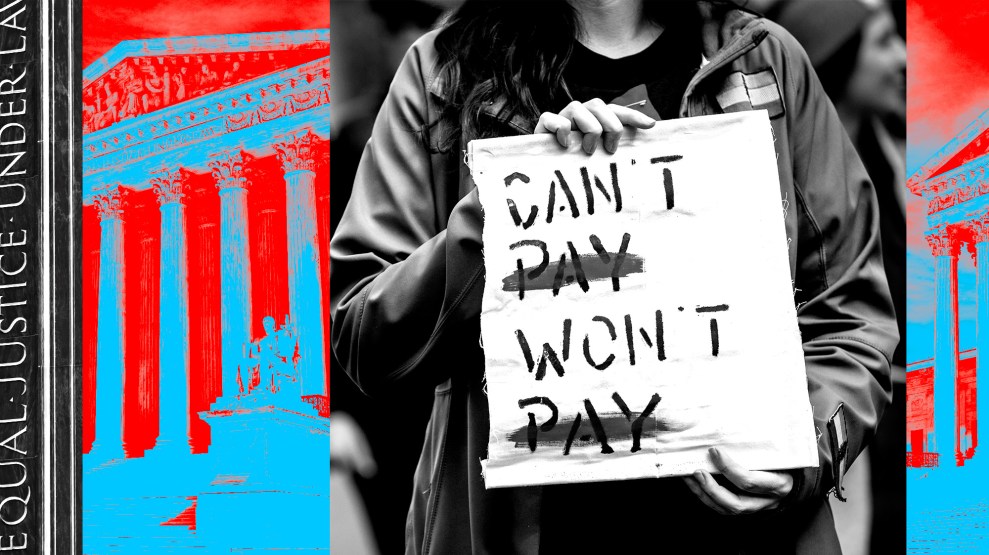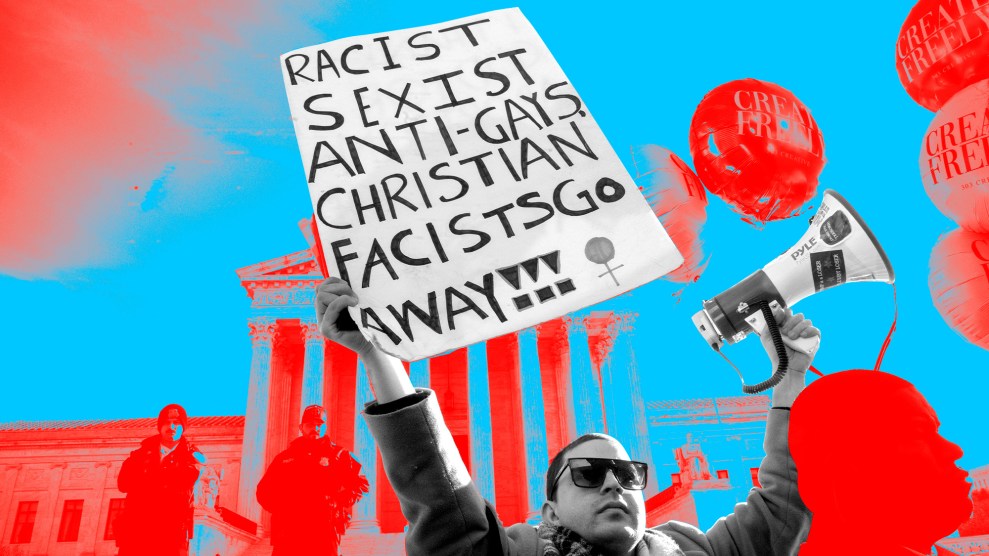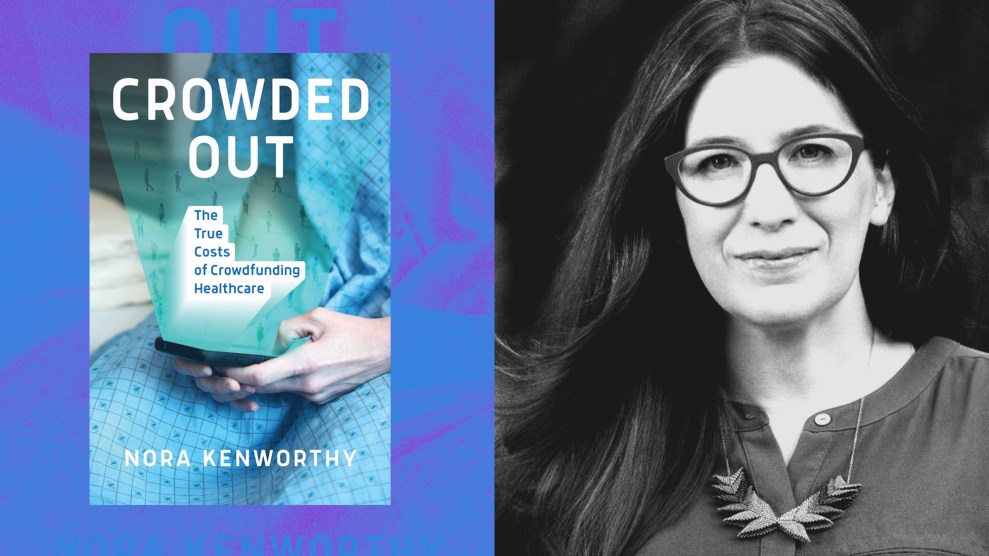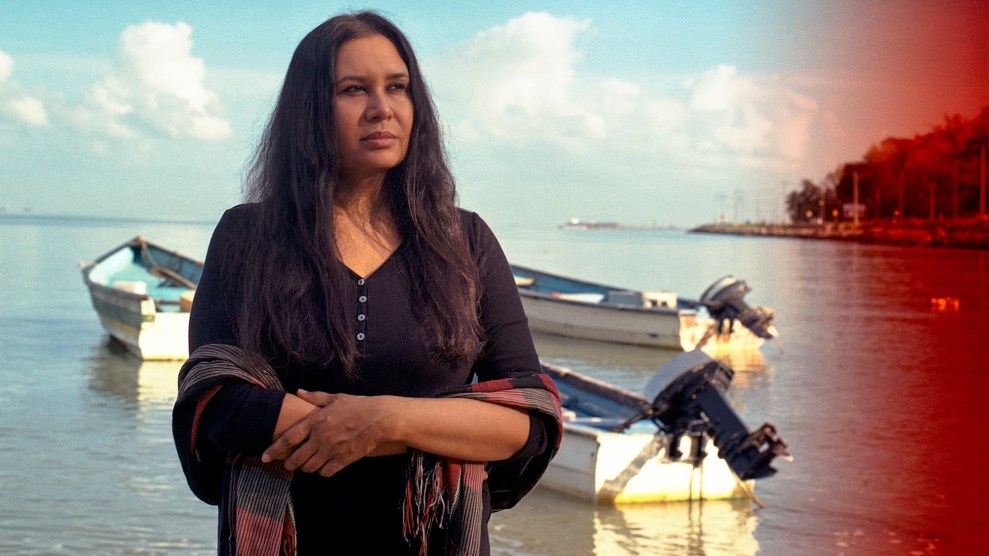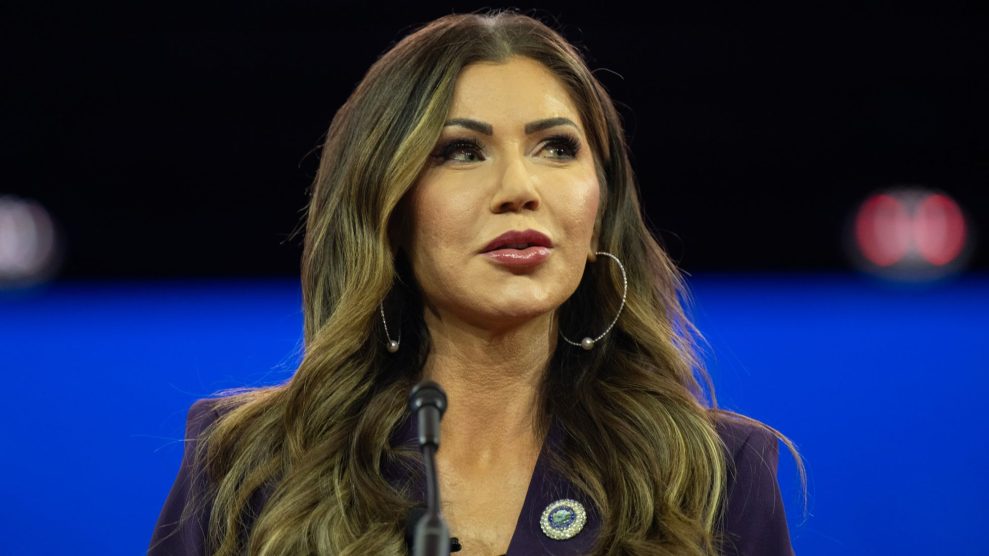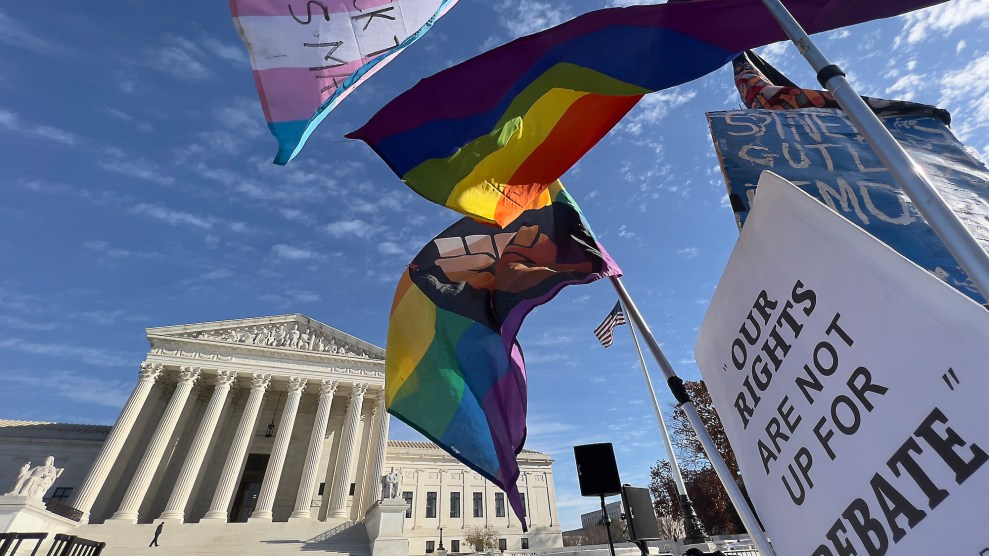
Stephen Shaver/ZUMA
On Friday, the Supreme Court ruled 6-3, along the usual lines, that a one-woman graphic design business in Colorado could not, theoretically, be forced to make a wedding website for a same-sex couple. The designer in question, Lorie Smith, wanted to put a statement on her website stating that she would not create websites “promoting and celebrating any other conception of marriage” besides that between straight couples. Smith was represented by the Alliance Defending Freedom, the conservative Christian legal behemoth behind a range of major anti-LBGTQ court cases. Her lawsuit, filed on September 20, 2016, sought to block Colorado from enforcing a state law banning discrimination by public-facing businesses against her.
If you believe the story told by court documents filed by ADF, the very day after opening her case, Smith received an inquiry through her website from a potential client named Stewart. “My fiancee is Mike,” Stewart ostensibly wrote. “We are getting married early next year and would love some done for our invites, placenames etc. We might also stretch to a website.”
It apparently took six years for anyone to verify the identity of Stewart, whose phone number and website appear unredacted in court documents. When Melissa Gira Grant of the New Republic texted him last week, Stewart—who is real, and lives in California—was “flabbergasted,” as he later told the Washington Post.
Stewart, as it turns out, is a graphic designer himself. He’s straight and has been married for 15 years to a woman, he informed Grant. And he had never submitted a request for design services to Smith, he told her. Grant wrote:
I don’t live inside Stewart’s computer—there’s a chance that he’s not telling me the whole story; that this is some elaborate prank he pulled years ago and doesn’t want to confess to now. But if he’s telling the truth—that this request was done completely without his knowledge—I don’t have any answers for him. None of this makes sense to me.
Because Smith’s lawsuit was a “pre-enforcement challenge,” it didn’t hinge on Stewart’s request, but ADF cited it repeatedly to support their arguments as the case made its way through the court system. ADF insisted to the Washington Post that Smith had, in fact, received the request. “Whether Lorie received a legitimate request or whether someone lied to her is irrelevant. No one should have to wait to be punished by the government to challenge an unjust law,” the organization said.
Still, the revelation makes the case even harder to stomach. As Justice Sonia Sotomayor said in her dissent, the case already rested on a tenuous claim of injury: Smith’s company, 303 Creative LLC, had never actually created a wedding website for anyone, let alone Stewart. “303 Creative has never sold wedding websites. Smith now believes, however, that ‘God is calling her to explain his true story about marriage.’ For that reason, she says, she wants her for-profit company to enter the wedding website business.”
In other words, this is a case about a theoretical issue centering on a made up client.
The news about Stewart—published the day before the court issued its decision—doesn’t appear to have affected the outcome. Justice Neal Gorsuch, writing for the majority, ruled that the First Amendment protects Smith’s company from being forced to create “expressive designs speaking messages with which the designer disagrees.”
Because the ruling is focused on “expressive” designs, it does not immediately allow all businesses to discriminate against LGBTQ people. But it chips away at anti-discrimination law, as President Joe Biden pointed out in a statement. “While the Court’s decision only addresses expressive original designs, I’m deeply concerned that the decision could invite more discrimination against LGBTQI+ Americans,” Biden said. “More broadly, today’s decision weakens long-standing laws that protect all Americans against discrimination in public accommodations—including people of color, people with disabilities, people of faith, and women.”

